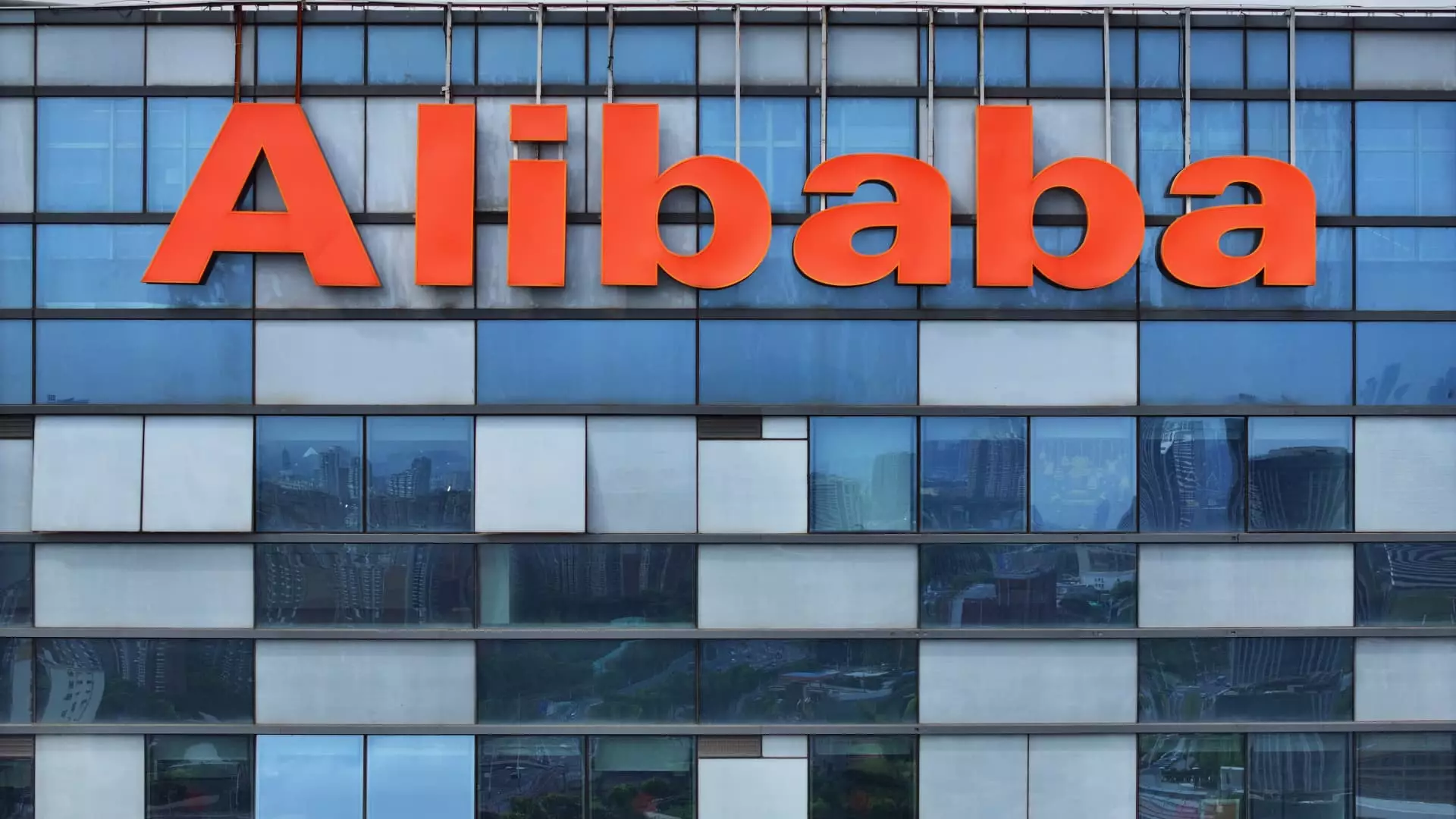Alibaba Group, a titan in the Chinese tech landscape, has seen its stock experience a remarkable resurgence after reporting outstanding quarterly results last week. The company’s shares surged by as much as 11% during trading on Friday in Hong Kong, eventually settling at an increase of 9.18%. This bullish trend can be attributed primarily to the robust performance of Alibaba’s cloud intelligence services and its e-commerce segments, which are central to its operational strategy. Notably, Nomura’s recent analysis indicates a strong outlook for Alibaba’s e-commerce business throughout the first half of 2025, highlighting the favorable conditions set by ongoing trade-in subsidies and policies aimed at stimulating consumer spending.
The Impact of Government Initiatives
China’s government has made strategic moves to invigorate domestic consumption, particularly through the announcement in July of 300 billion yuan (approximately $41.5 billion) earmarked for ultra-long special government bonds. This funding aims to enhance existing trade-in and equipment upgrade policies, thereby encouraging consumer confidence and, ultimately, spending. As domestic e-commerce begins to stabilize and show signs of sustainable growth, the sentiment surrounding Alibaba and the broader tech sector in China appears to be improving. Analysts, such as Vey Sern Ling from UBP, point to the recovery trend, suggesting that it is not only bolstering Alibaba but also uplifting the wider Chinese technology ecosystem.
A noteworthy aspect of Alibaba’s recent strategic direction is its commitment to investment in artificial intelligence and cloud infrastructure. The launch of its flagship AI foundation model, Qwen 2.5-Max, has reportedly spurred a significant increase in demand for AI-related services, accounting for approximately 70% of new consumer inquiries. This pivot towards AI growth not only points to Alibaba’s adaptive business model in a rapidly changing tech environment but it also signals a forecasted intense capital commitment. Barclays analysts project that the upcoming three-year timeline will mark a concentrated phase of investment, potentially exceeding the total capital expenditure of the previous decade.
The Challenge of Regulatory Scrutiny
However, it is crucial to acknowledge the complex backdrop against which Alibaba operates. Since 2020, the company has been under the lens of regulatory scrutiny following its associate Ant Group’s aborted initial public offering, which was due to government intervention. The founder, Jack Ma, has shunned the public eye for a prolonged period but made a rare appearance at a recent meeting with President Xi Jinping. During the meeting, Xi emphasized the need for private enterprises to regain their confidence and demonstrate their potential in this “new era” of operations. This political dialogue raises questions about the relationship between Alibaba and the Chinese government moving forward, especially as the tech giant seeks to expand its reach in innovative technological domains.
On the financial front, Alibaba reported a net income of 48.945 billion yuan ($6.72 billion) for the quarter ending December 31. This figure not only surpassed the consensus estimates from LSEG analysts who had forecasted 40.6 billion yuan but also reflected an impressive more-than-threefold increase compared to the 14.4 billion yuan recorded in the same period the previous year. Their revenue also came in ahead of expectations at 280.15 billion yuan, indicating a solid recovery trajectory, particularly after the negative impacts of prior market pressures.
Additionally, shares listed on U.S. exchanges also experienced a robust uptick, rising over 8% following the announcement of these favorable results. This reflects a growing investor confidence in Alibaba’s continued growth prospects as it navigates the complexities of both market demands and regulatory landscapes.
Alibaba’s recent surge in share value underscores a broader positive sentiment fueled by its stellar quarterly performance and strong predictions for future growth, especially within the realms of AI and e-commerce. Nonetheless, as the company strives for innovation and expansion, it must also effectively manage regulatory pressures and ensure that it remains in good standing with the government—a balancing act that will dictate its success in the forthcoming years. The future presents both opportunities and challenges, but Alibaba’s strategic initiatives and government support may pave the way for an exciting new chapter in the company’s storied legacy.

Leave a Reply